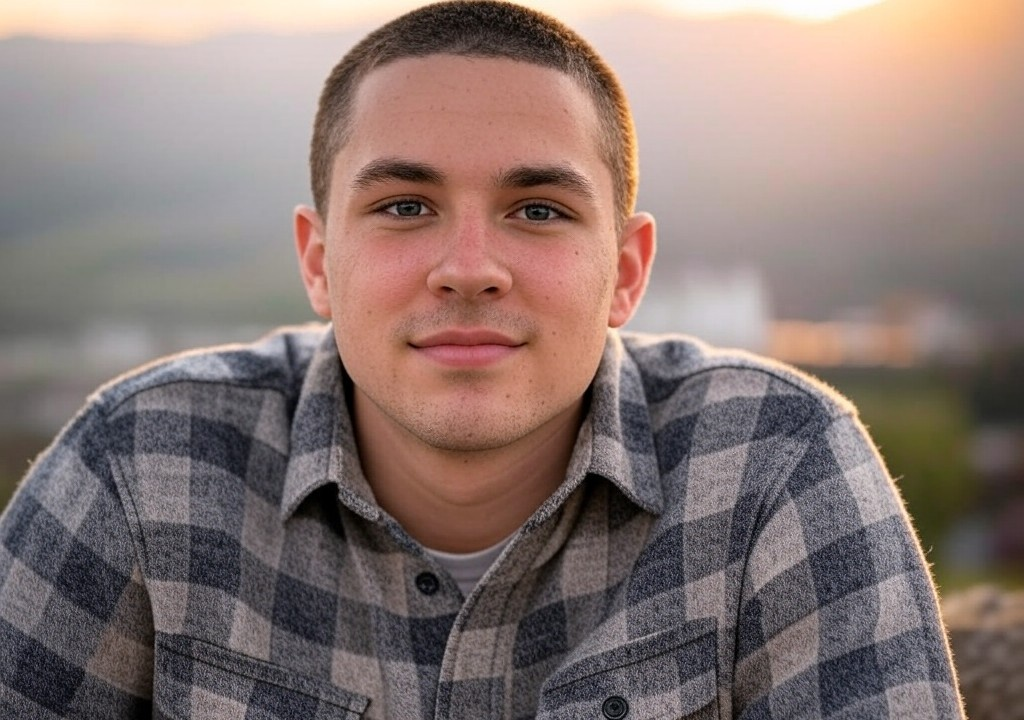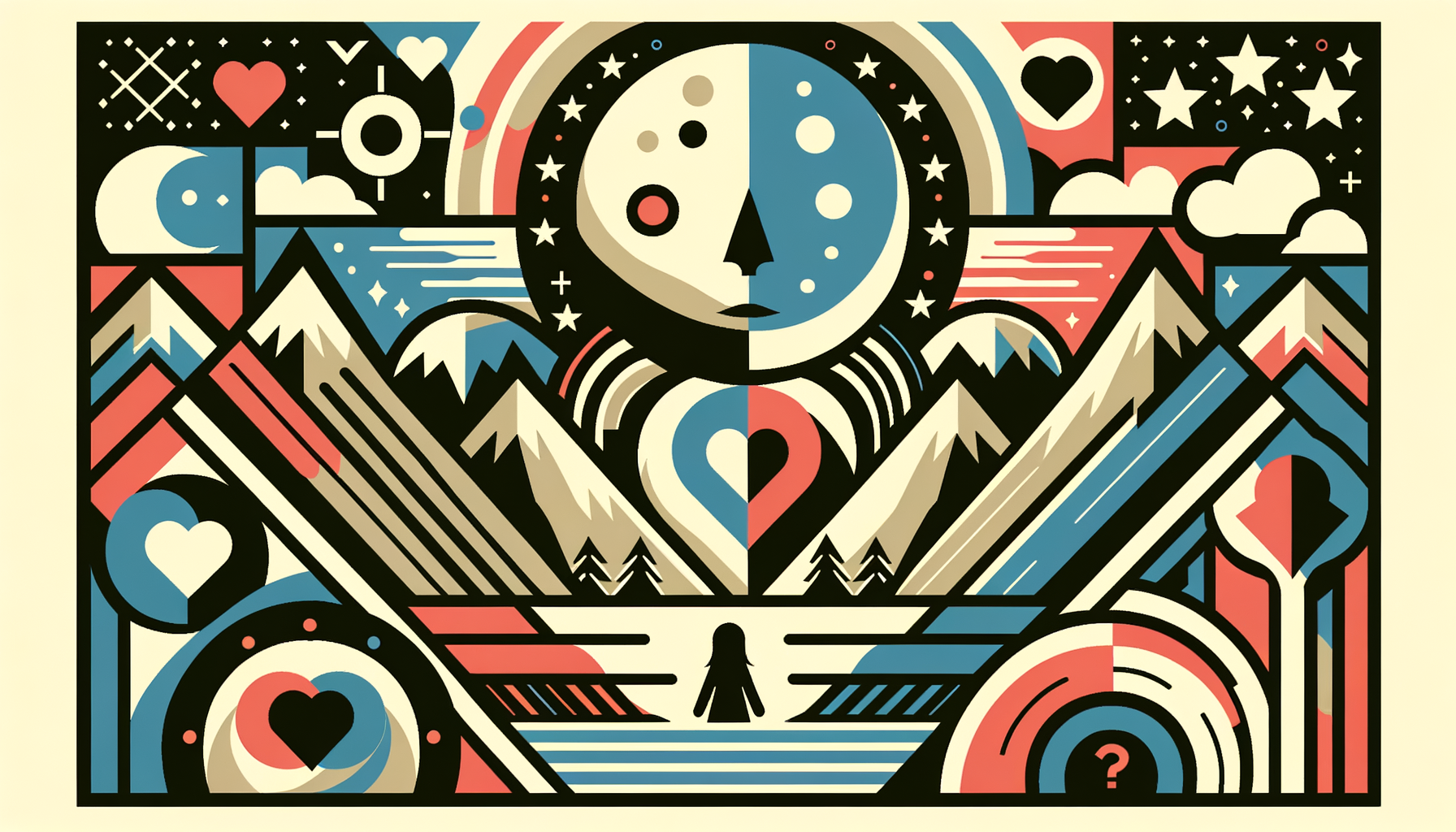“Why are you so curious about love?” my mom asked as we sat on the back porch one summer evening. It wasn’t an accusatory question, just an honest one. I’d been pestering her with what seemed like an endless barrage of questions about how she and my dad made it work for 30 years—questions that likely had no easy answers. There we were, sharing a pitcher of homemade lemonade as the sun dipped behind the Wasatch Mountains, and I was trying to unravel the complexities of connection. To her, it probably felt random. To me, it felt essential.
In hindsight, the question wasn’t merely casual. It was a nudge for me to put into words something I’d spent years untangling—why love, connection, and relationships seemed to linger so stubbornly in my mind. Writing about love, romance, and all the glorious and messy in-betweens isn’t something a young Caleb Peterson would have put on his career vision board (had I been organized enough to have one). So how did I get here? Why walk this path when I could’ve stayed safer, say, writing about hiking tips or LDS Church history? Well, grab a cup of coffee, tea, or if you’re me, a lukewarm LaCroix you opened yesterday and forgot about. Let me tell you.
The Quiet Observations of a Utah Boy
Growing up in a small suburb of Salt Lake City, I learned early on how much people loved to talk about love—or more accurately, the appearance of it. My teenage afternoons were spent observing the subtle yet oddly choreographed dance of high school romance: passing notes in seminary classes, exchanging uncertain glances at stake dances, and striving to look busy during temple trips just in case that special someone also showed up. Love wasn’t just a feeling, I realized. It was a performance.
At the same time, my parents demonstrated something quieter but, to my mind, infinitely more compelling. It wasn’t grand or showy, but it was dependable, like the mountains that framed our backyard. They rarely made sweeping declarations, but they always shared the mundane, everyday moments—a joint effort to pull weeds in the garden, a touch of a hand on someone’s shoulder, and evening conversations over half-melted bowls of ice cream. What they had wasn’t the fairy-tale romance peddled by YA novels and Hollywood rom-coms. It was real, it was present, and it seemed… sturdy.
This duality fascinated me. How could something so universally desired look so different, depending on your lens? Spoiler alert: This pesky fascination never left.
Love (and Faith) on the Edge
Fast-forward a few years to college. I enrolled at the University of Utah as an eager Religious Studies major, ready to devour every obscure theological text I could find. Somewhere between parsing the Dead Sea Scrolls and analyzing Flannery O’Connor stories, I realized that faith, when boiled down, is its own kind of love story—belief spans trust, vulnerability, and commitment, much like relationships do. My LDS upbringing had steered much of my framework for viewing the world, but as I began to question certain aspects of it, I also began questioning the “rules of connection” I’d internalized along the way.
I found myself drawn not to doctrines or commandments, but to the messy, gray areas in between. What happens when expectations clash with reality? When faith in someone—or something—feels like a freefall rather than a safe haven? Sound dramatic? Sure. But decoding this tension became my obsession, both in matters of faith and in relationships. And as I poured these questions into personal essays and journals (fueling my caffeine addiction at the campus café), I discovered something odd: people related to the messiness. My thoughts—the ones I’d been afraid were too niche to matter—were sparking connections.
Storytelling as a Date Night
My return back to Salt Lake City after a brief stint in Denver cemented something important: I am happiest when I’m untangling humanity in words. By this point, I’d worked my way through breakups and quarter-life crises, all of which solidified my understanding of connection as something profoundly personal yet universal. Teaching writing workshops only deepened this empathy—I saw firsthand how often people wrestled with vulnerability, whether it was sharing their innermost thoughts on paper or learning to say “I love you” without batting away the panic.
Here’s the thing about love (and writing about it): it really does feel like a first date. You’re putting yourself out there, uncertain whether your words will land, whether the tenderness with which you handle a subject will resonate. You risk being misunderstood, just as you might when confessing your feelings to someone you secretly adore. But let me tell you—when it does connect with someone, it’s magic. These stories, these shared experiences, and vulnerabilities act as a kind of mirror, reflecting back to readers what they know but fear saying aloud.
The Romantic Comedy Blueprint for Writing About Love
If I had to frame my career choice in terms of a romantic comedy trope, it’d probably be “the nerd who over-prepares for everything but still falls flat… until it somehow works out.” Think about those movie montages where the protagonist Google’s “how to impress a potential partner during trivia night” and ends up putting both feet in their mouth because they went too hard trying to debate 80s pop culture. That’s me, but with relationships and writing.
Want to know the truths I live by that led me here? Here’s my quick list:
-
People aren’t algorithms. Connection is messy, wonderfully so, and no amount of reading “10 text messages to win over your crush” listicles can replicate genuine effort or attentiveness.
-
Start with your flaws. Too often we think love—romantic or otherwise—comes from performing some ideal version of ourselves. Love is actually found in letting someone see the parts of you that are unscripted and imperfect.
-
Vulnerability is the most underrated superpower. Whether it’s cracking a self-deprecating joke on a first date or admitting you still can’t figure out why you like “All Too Well (10-Minute Version)” on the fifth listen, sharing a piece of yourself honestly can change everything.
-
Faith and love require equal courage. Both can feel risky, but the payoff—connection, trust, intimacy—is worth leaping for every single time.
Leave Your Hiking Boots; Bring Your Curiosity
So, why THIS path? Why write about emotions and connection instead of sticking to what felt familiar? The answer lies in those mountains I grew up with: they’re right there on the horizon, beautiful and steady, but you’ll never appreciate them fully until you lace up your boots and explore them yourself. Love is the same. It’s compelling to talk about, but until you roll up your sleeves and begin understanding it—through experience, reflection, and yes, stumbling—you’re missing the bigger picture.
Writing about love keeps me curious. It reminds me to dig deeper. And, most importantly, it offers me (and my readers) a safe space to figure out how to approach those staggering peaks of connection, even if we still don’t quite know where the trail ends.
In the meantime, there’s always lemonade, the setting sun, and a million more questions waiting to be asked.




















